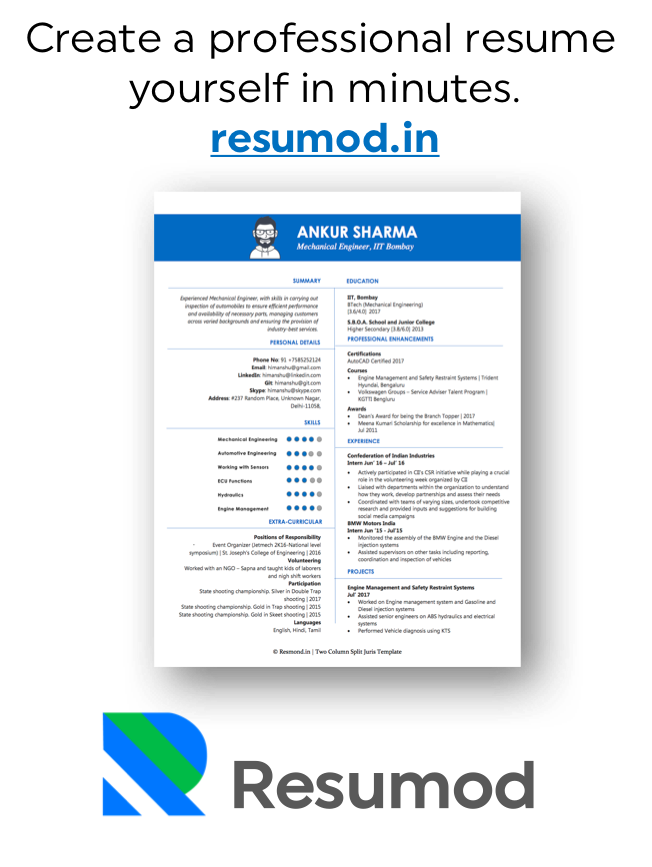You’ve appeared for all the stages of your interview and all seems to have gone down well. What remains now is the final call from the HR and that most important question which puts every candidate in an anxious position, “What are you expecting”.

Giving the HR a salary figure or negotiating it is perhaps the most vital component of the interview process from the candidate’s perspective. As much as a good interview matters to the employer, a good hike from the previous salary matters to the prospective employee. But the negotiation always starts from the employee’s end. You might ask for too much and sabotage your chance of getting the best possible salary, or might ask for too little and end up with less than you deserved.
To ensure that the negotiations go down smoothly, here are a few points to keep in mind:
1. Don’t negotiate before you have an offer. This is a very basic thing which candidates fail to pay attention to. If you do not have a job, there is no point in asking for a salary, right? So first clear all the interviews, get that offer, and let the employer know that you are the right person for it. Only then will you be in a position to ask for a preferred hike and the employer be in a position to negotiate it with you.
2. Don’t mention your salary in your Resume/Cover Letter. Doing so, will only make it easier for the employer to reject your resume without even testing your calibre. Many candidates do it and it is not the right thing. Salary information, present or past should be avoided from a resume or application letter at all costs.
3. Be prepared. When you apply for any position, be prepared that at some point during the interview the employer will ask you about the salary range you are looking for. If you say a random figure at this point, and then get the offer it will become very difficult to change your expectation or quote a new salary figure. So it is very important that you do some research and be prepared with what salary you need to ask your prospective employer. Some sources where you can find out about what salary you should be expecting are
a. People already working in a similar industry
b. Salary/ Employment Surveys (like these)
c. Popular career / HR forums
d. HR Consultants (who hook you up for interviews). Although it is unlikely that they will tell you, but then there is no harm in asking
e. Government Salaries in a similar domain (take the figure and then mark it up by a factor to account for the private organization’s capacity)
Another factor to be kept in mind when thinking of a salary figure is what you will be sacrificing or gaining from the job at the personal front. If the working hours are longer, the office farther and commuting troublesome, you might want to ask for a bit more. On the other hand, if the office is close to your home and working hours are flexible giving you more time to spend with yourself and your family, you may want to bargain for a little less.
4. Don’t cite personal reasons while negotiating. You may be under the burden of a house loan or your kid might be planning to join college soon, but these are your personal reasons and should be avoided during a salary negotiation process; it will only put you in a bad light with the employer. While negotiating with the employer, be as professional as possible and only cite reasons related to industry average, expected work vs. your experience level or a justified hike. You will be paid more if you are providing that extra value to the company.
Apart from the salary, there are many other components which make up the CTC (Cost To Company) of your package. When negotiating, be prepared with these things in mind.
5. Don’t delay from your end. When the final round is done with and the HR has extended an offer, don’t take astronomical years in coming up with your salary figure. It is normal to ask for a few days’ to a week to consider the offer, but not more than that. If you take more than a week to respond, it will only send the impression that you are probably not interested in the job or if you join, you will leave as soon as a better opportunity (in terms of package or work) comes your way. So don’t delay in responding.
Another thing to note here is that many times candidates refuse to quote a figure to the HR and delay it as much as possible. Doing this has the potential of turning off the employer and taking away your chance at the employment.
6. Include benefits when quoting a Salary figure. Apart from the salary, there are many other components which make up the CTC (Cost To Company) of your package. These include healthcare expenses, insurance, mediclaim, medical leaves, pension amount deduction, conveyance expenses etc. When thinking about what salary to demand, keep these things in mind and weigh which options matter more than others.
7. Always Negotiate. Don’t accept the first figure thrown at you. If you do not negotiate you would never know what you could have got or how much more you could have received had you bargained.



